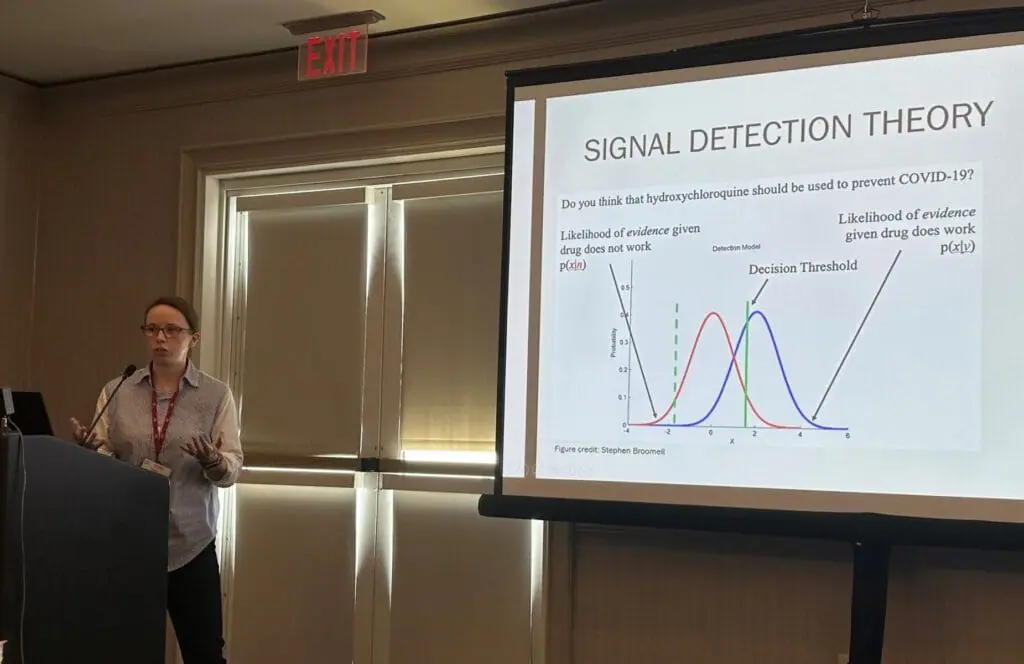In this series, we're sitting down with the Swette Center-affiliated faculty to catch up on food systems, innovation, and what makes a good meal. See the rest of the series on our Food Systems Profiles page.
Read on for an interview with Caitlin Otten, Assistant Professor in the School of Human Evolution and Social Change.
How did you get interested in food systems?

My interest in food systems started with my mom, who is a nutritionist and dietitian. I remember doing a project on genetically modified foods in school, and asking my mother to help me find resources for it. I became familiar with the idea of nutrition, especially nutrition research, from an early age by seeing her, for example, revise the nutrition textbooks she had written to incorporate the latest nutritional research and dietary recommendations. In retrospect, I think that was a really formative experience for me. Though I didn’t realize it at the time, I was learning about scientific research and how scientific evidence is constantly being updated and added to.
In some ways, that experience led me to my broader overall research goal, which is understanding how people understand and use scientific evidence in their decisions. What we're going to eat, what we want to purchase at the grocery store, where we want to go out and eat…: these are really personal and complex decisions. My research tries to better understand how people are engaging with the scientific evidence that could help them sort through, for example, the many available food choices and nutritional recommendations.
Can you share a glimpse of your current research and how it applies to food systems transformation?
One paper that I can highlight right now looks at people's attitudes toward genome-edited foods. My co-authors and I were specifically interested in people's willingness to engage in civic and political actions about genome editing. We asked our participants whether they were willing to discuss genome editing with someone else, sign a petition, or engage in a public protest or demonstration about genome editing. While genome editing has the potential to improve our food supply and make it more resilient to threats like climate change, there are also risks and uncertainties associated with this technology. Research suggests that genome editing is a controversial and polarizing topic, for which people on either side of the topic hold strong viewpoints, and that's what we were really curious to dig into. We recently submitted this paper for publication and look forward to sharing our results once it is published.
What's an innovation of food systems that you're excited about?
I would have to say genome editing, and the broader array of New Genomic Techniques that can alter the genetic materials of organisms. These techniques can be used to do things like improve food quality and disease resistance, as well as to help make our food systems more resilient to climate change, which I think is really exciting! It’s so interesting to look back on my childhood project about genetically modified foods, and think how, decades later, this is still such an important topic to study in the face of planetary challenges.
What's your favorite weeknight meal?
My initial thought is leftovers! I am a very lazy chef, so if I can reheat something, that’s amazing. My usual goals for a weeknight meal are something nutritious, but with minimal preparation and clean up. If I can put something on a sheet pan, such as fish or chicken and some roasted veggies, then throw that in the oven and walk away, I am happy!